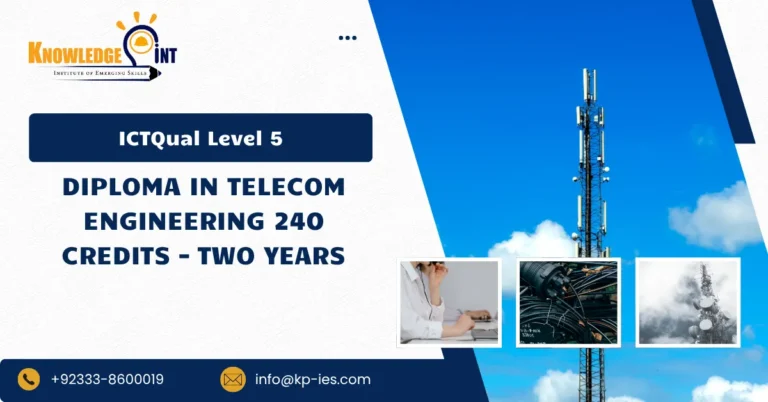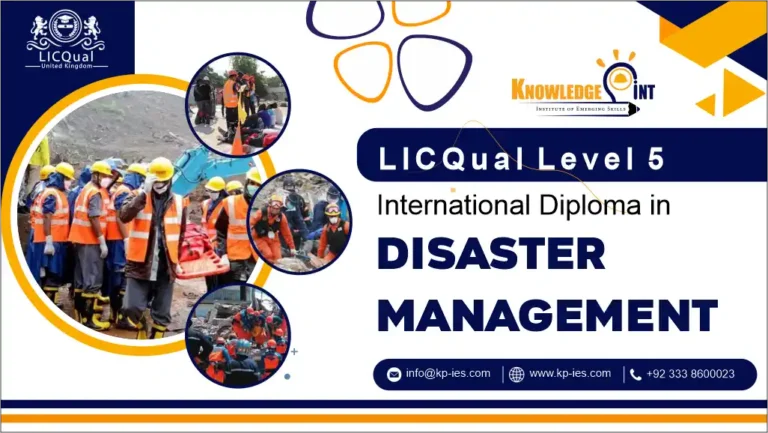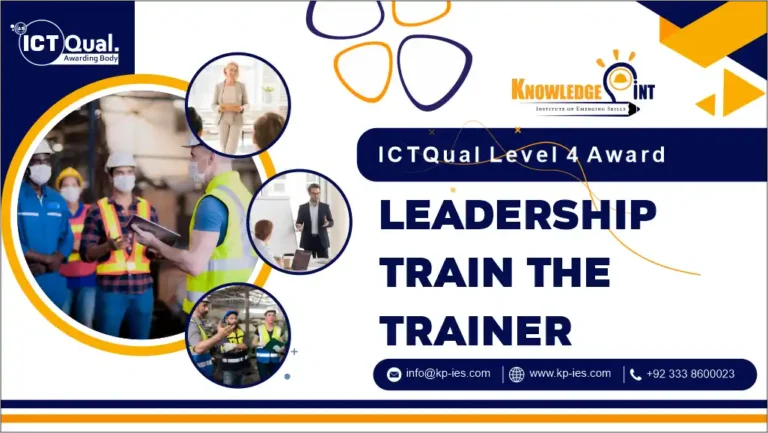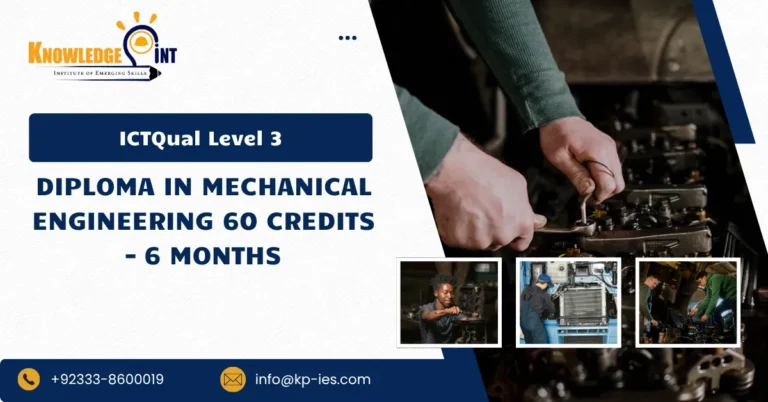In today’s dynamic work environments, understanding and managing risks is a vital skill. Whether you’re in the early stages of your career or looking to enhance your knowledge in risk management, the LicQual Level 2 Award in Risk Assessment is designed to provide you with essential skills and insights. This qualification is an excellent starting point for anyone responsible for risk assessment within their organization or seeking to improve workplace safety.
The LicQual Level 2 Award in Risk Assessment is a foundational qualification that introduces you to the principles and practices of risk assessment. This course is ideal for those who have little or no previous experience in risk management but are keen to develop their capabilities in this critical area. The program covers fundamental concepts and provides practical skills that can be applied immediately in the workplace.
The LicQual Level 2 Award in Risk Assessment is an excellent starting point for anyone looking to develop essential skills in risk management. This qualification not only enhances your understanding of risk assessment principles but also provides practical tools to improve workplace safety. Whether you’re beginning your career or seeking to expand your knowledge, this award can help you achieve your professional goals and make a meaningful impact in your organization.
Take the first step towards mastering risk assessment and enhancing your career prospects. Enroll in the LicQual Level 2 Award in Risk Assessment today and start building a safer, more secure future in your workplace. Your journey to effective risk management begins here.
Course Overview
The LicQual Level 2 Award in Risk Assessment consists of 5 mandatory units which are as follows.
The learning outcomes of LicQual Level 2 Award in Risk Assessment include:
Introduction to Risk Assessment
- Understand the Concept of Risk Assessment: Gain a clear understanding of what risk assessment is and its importance in the workplace.
- Historical and Legal Context: Learn about the historical background of risk assessment and its legal significance in health and safety regulations.
- Fundamental Principles: Understand the basic principles of risk assessment, including hazard identification, risk evaluation, and control.
- Types of Risks: Familiarize yourself with different types of risks (e.g., physical, chemical, biological) and their potential impacts.
- Role of Risk Assessment in Safety Management: Recognize the role of risk assessment in broader safety management practices and organizational safety culture.
Identifying Hazards and Risks
- Hazard Identification Techniques: Learn various techniques for identifying hazards in the workplace, such as checklists, inspections, and employee consultations.
- Common Workplace Hazards: Identify common hazards in different work environments, including physical, chemical, biological, ergonomic, and psychosocial hazards.
- Risk Factors: Understand the factors that contribute to the likelihood and severity of risks associated with identified hazards.
- Involving Employees: Recognize the importance of involving employees in the hazard identification process to ensure comprehensive risk assessments.
- Documentation of Hazards: Develop skills in accurately documenting identified hazards for further assessment and control.
Risk Assessment Methods
- Qualitative and Quantitative Methods: Understand the difference between qualitative and quantitative risk assessment methods and their appropriate applications.
- Basic Risk Assessment Techniques: Gain proficiency in basic risk assessment techniques, such as Job Safety Analysis (JSA) and simple risk matrices.
- Risk Analysis: Learn how to analyze identified risks in terms of their potential impact and likelihood.
- Prioritizing Risks: Develop skills in prioritizing risks based on their severity and likelihood to focus control efforts effectively.
- Practical Application: Apply risk assessment methods to real-world scenarios through practical exercises and case studies.
Implementing Control Measures
- Hierarchy of Control: Understand the hierarchy of control measures, from elimination and substitution to engineering controls, administrative controls, and personal protective equipment (PPE).
- Selecting Appropriate Controls: Learn how to select the most appropriate control measures for identified risks, considering their effectiveness and feasibility.
- Implementing Controls: Gain practical skills in implementing control measures to mitigate risks in the workplace.
- Monitoring and Review: Understand the importance of monitoring and reviewing control measures to ensure their continued effectiveness.
- Cost-Benefit Analysis: Develop basic skills in conducting cost-benefit analyses to evaluate the practicality and efficiency of control measures.
Communication and Documentation
- Effective Communication: Learn the principles of effective communication in the context of risk assessment and risk management.
- Stakeholder Engagement: Understand the importance of engaging with various stakeholders, including employees, management, and external parties, throughout the risk assessment process.
- Risk Assessment Reporting: Develop skills in documenting and reporting risk assessment findings, including writing clear and concise risk assessment reports.
- Maintaining Records: Understand the importance of maintaining accurate records of risk assessments, hazard identifications, and control measures.
- Training and Awareness: Learn how to develop and deliver training programs to raise awareness about risk assessment and management among employees.
Course Benefits of the LicQual Level 2 Award in Risk Assessment :
1. Specialized Expertise
- Auditing Proficiency: Gain specialized knowledge and skills in auditing energy management systems according to the ISO 50001:2018 standard.
- Industry Recognition: Earn a globally recognized qualification that demonstrates your proficiency as an energy management systems auditor.
2. Career Advancement
- Expanded Career Opportunities: Qualify for roles such as Lead Energy Auditor, Energy Management Consultant, or Compliance Officer.
- Higher Earning Potential: Enhance your value to employers and increase your earning potential with specialized expertise in energy management auditing.
3. Industry-Relevant Skills
- Practical Application: Acquire practical skills and techniques for planning, conducting, and documenting energy management system audits.
- Effective Communication: Develop communication skills to interact with auditees, audit teams, and stakeholders effectively.
4. Contribution to Sustainability
- Promotion of Energy Efficiency: Play a key role in promoting energy efficiency and reducing environmental impact within organizations.
- Support for Sustainable Practices: Assist organizations in implementing and maintaining energy management systems that support sustainability goals.
5. Quality Assurance
- Compliance Assurance: Help organizations achieve compliance with ISO 50001:2018 requirements and other relevant regulatory standards.
- Risk Mitigation: Identify areas of non-conformance and provide recommendations for corrective actions to mitigate risks.
6. Continuous Professional Development
- Lifelong Learning: Engage in continuous professional development by staying updated with the latest developments and trends in energy management auditing.
- Networking Opportunities: Connect with industry professionals, auditors, and experts, expanding your professional network and opportunities.
7. Organizational Benefits
- Improved Performance: Contribute to the improvement of organizational energy performance through effective auditing and recommendations for continuous improvement.
- Enhanced Reputation: Help organizations build a positive reputation for their commitment to energy management and sustainability practices.
8. Personal Growth
- Leadership Development: Develop leadership skills to effectively manage audit teams, delegate tasks, and ensure audit objectives are met.
- Confidence Boost: Gain confidence in your abilities as an energy management systems auditor through practical training and hands-on experience.
The LicQual Level 2 Award in Risk Assessment provides a solid foundation in risk management, making it an ideal starting point for those looking to enhance their skills and career prospects in health and safety. Here’s a look at the future progression opportunities available to graduates of this qualification:
Further Education
- LicQual Level 3 Certificate in Risk Assessment Principles and Practice:
- Advanced Risk Assessment Skills: Build on the foundational knowledge gained in the Level 2 Award, exploring more complex risk assessment techniques and strategies.
- Broader Scope: Cover a wider range of risk management topics, including risk evaluation, control measures, and legal requirements.
- LicQual Level 3 Certificate in Occupational Health and Safety:
- Comprehensive Safety Training: Gain in-depth knowledge of occupational health and safety practices, regulations, and standards.
- Specialized Focus: Focus on specific areas such as workplace safety, accident prevention, and safety management systems.
- NEBOSH National General Certificate in Occupational Health and Safety:
- Industry-Recognized Qualification: Earn a globally recognized qualification that provides comprehensive training in health and safety.
- Enhanced Career Prospects: Open doors to advanced roles in health and safety management, compliance, and consultancy.
- Professional Certifications:
- IOSH Working Safely: Obtain a qualification that provides a basic understanding of workplace health and safety, enhancing your ability to contribute to safety initiatives.
- CITB Health and Safety Awareness: Gain essential knowledge in construction site safety, ideal for those working in the construction industry.
Career Advancement
- Entry-Level Health and Safety Roles:
- Health and Safety Assistant: Support health and safety initiatives within organizations, conducting risk assessments and helping to implement safety measures.
- Safety Coordinator: Coordinate safety programs, ensuring compliance with regulations and promoting a safe work environment.
- Specialist Roles:
- Risk Assessor: Conduct detailed risk assessments across various industries, identifying hazards and recommending control measures.
- Safety Advisor: Provide expert advice on health and safety practices, helping organizations develop and maintain effective safety management systems.
- Safety and Compliance Positions:
- Compliance Officer: Ensure that organizations adhere to health and safety regulations and industry standards through effective risk management practices.
- Quality Assurance Officer: Integrate risk assessment into quality assurance processes, enhancing operational efficiency and safety standards.
Professional Development and Networking
- Industry Workshops and Seminars:
- Attend Workshops: Participate in workshops and seminars to stay updated with the latest trends and advancements in risk management and health and safety.
- Networking Opportunities: Connect with professionals and industry experts to expand your network and enhance your career prospects.
- Online Courses and Webinars:
- Advanced Learning: Enroll in online courses and webinars that cover advanced topics in risk assessment, safety management, and compliance.
- Continuous Education: Take advantage of e-learning platforms to continuously update your skills and knowledge.
- Professional Associations:
- Join IOSH (Institution of Occupational Safety and Health): Become a member to access professional development resources, industry updates, and networking opportunities.
- Engage with Industry Bodies: Participate in events and forums organized by industry bodies to stay informed and connected with the latest developments in risk management.
The LicQual Level 2 Award in Risk Assessment is a valuable starting point for anyone interested in pursuing a career in health and safety. It equips you with the essential skills and knowledge needed to identify and manage risks effectively. As you build on this foundation, you can progress to more advanced qualifications and career opportunities, enhancing your expertise and boosting your career in the field of risk management and safety. Whether you choose to further your education, advance in your current role, or explore new opportunities, this qualification sets you on a path to success in the dynamic world of risk management.







